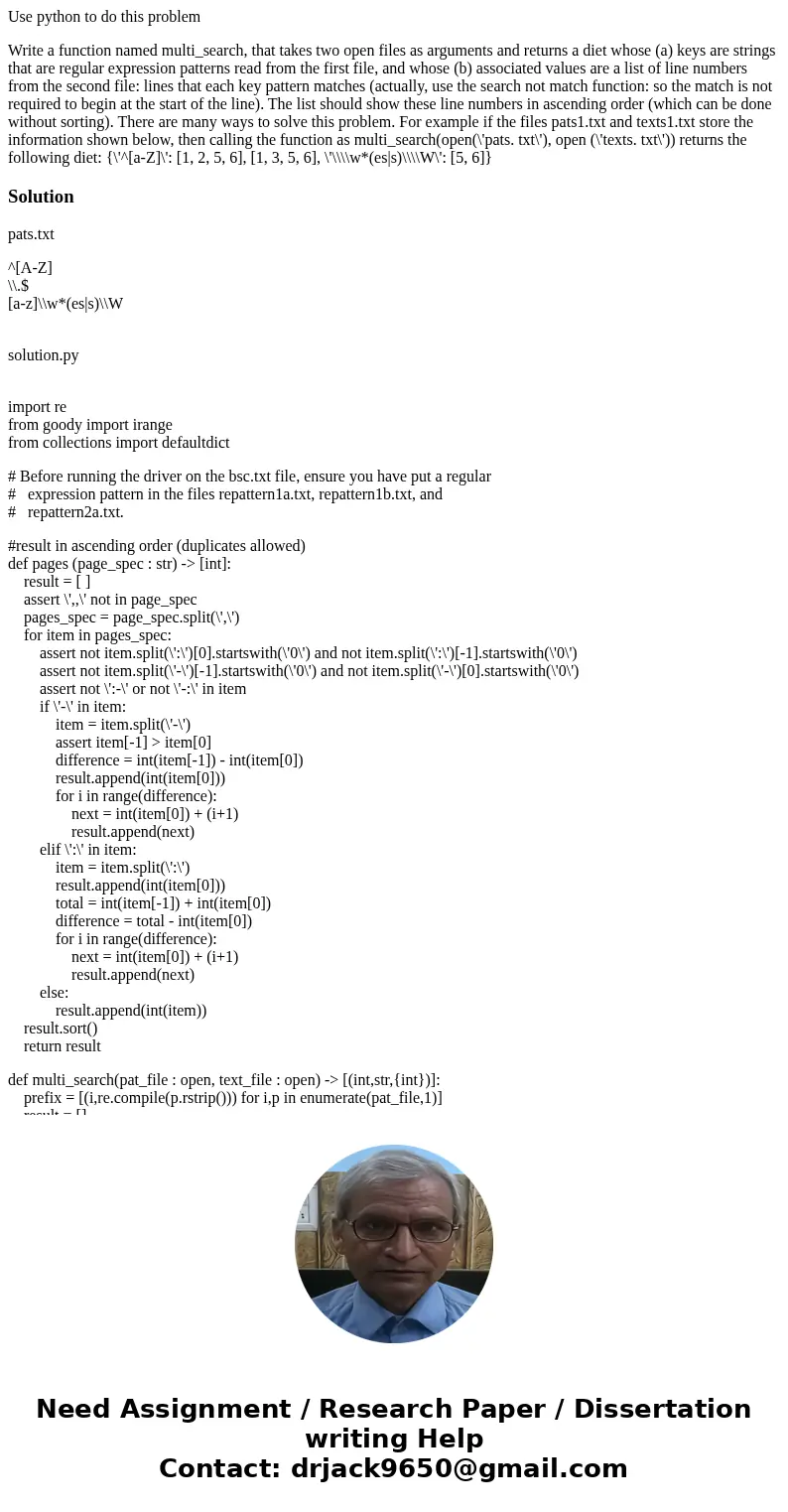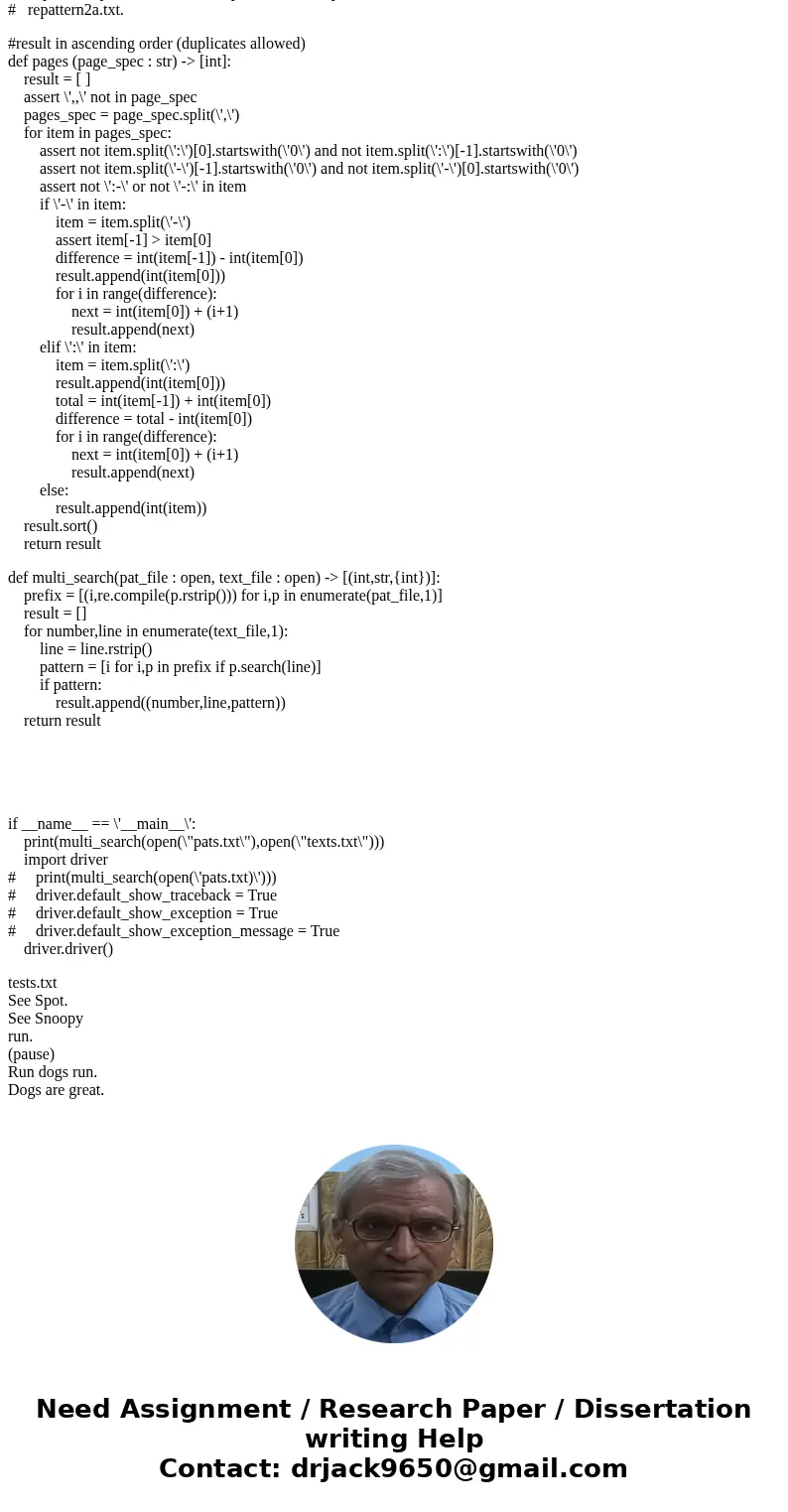Use python to do this problem Write a function named multise
Use python to do this problem
Write a function named multi_search, that takes two open files as arguments and returns a diet whose (a) keys are strings that are regular expression patterns read from the first file, and whose (b) associated values are a list of line numbers from the second file: lines that each key pattern matches (actually, use the search not match function: so the match is not required to begin at the start of the line). The list should show these line numbers in ascending order (which can be done without sorting). There are many ways to solve this problem. For example if the files pats1.txt and texts1.txt store the information shown below, then calling the function as multi_search(open(\'pats. txt\'), open (\'texts. txt\')) returns the following diet: {\'^[a-Z]\': [1, 2, 5, 6], [1, 3, 5, 6], \'\\\\w*(es|s)\\\\W\': [5, 6]}Solution
pats.txt
^[A-Z]
\\.$
[a-z]\\w*(es|s)\\W
solution.py
import re
from goody import irange
from collections import defaultdict
# Before running the driver on the bsc.txt file, ensure you have put a regular
# expression pattern in the files repattern1a.txt, repattern1b.txt, and
# repattern2a.txt.
#result in ascending order (duplicates allowed)
def pages (page_spec : str) -> [int]:
result = [ ]
assert \',,\' not in page_spec
pages_spec = page_spec.split(\',\')
for item in pages_spec:
assert not item.split(\':\')[0].startswith(\'0\') and not item.split(\':\')[-1].startswith(\'0\')
assert not item.split(\'-\')[-1].startswith(\'0\') and not item.split(\'-\')[0].startswith(\'0\')
assert not \':-\' or not \'-:\' in item
if \'-\' in item:
item = item.split(\'-\')
assert item[-1] > item[0]
difference = int(item[-1]) - int(item[0])
result.append(int(item[0]))
for i in range(difference):
next = int(item[0]) + (i+1)
result.append(next)
elif \':\' in item:
item = item.split(\':\')
result.append(int(item[0]))
total = int(item[-1]) + int(item[0])
difference = total - int(item[0])
for i in range(difference):
next = int(item[0]) + (i+1)
result.append(next)
else:
result.append(int(item))
result.sort()
return result
def multi_search(pat_file : open, text_file : open) -> [(int,str,{int})]:
prefix = [(i,re.compile(p.rstrip())) for i,p in enumerate(pat_file,1)]
result = []
for number,line in enumerate(text_file,1):
line = line.rstrip()
pattern = [i for i,p in prefix if p.search(line)]
if pattern:
result.append((number,line,pattern))
return result
if __name__ == \'__main__\':
print(multi_search(open(\"pats.txt\"),open(\"texts.txt\")))
import driver
# print(multi_search(open(\'pats.txt)\')))
# driver.default_show_traceback = True
# driver.default_show_exception = True
# driver.default_show_exception_message = True
driver.driver()
tests.txt
See Spot.
See Snoopy
run.
(pause)
Run dogs run.
Dogs are great.


 Homework Sourse
Homework Sourse